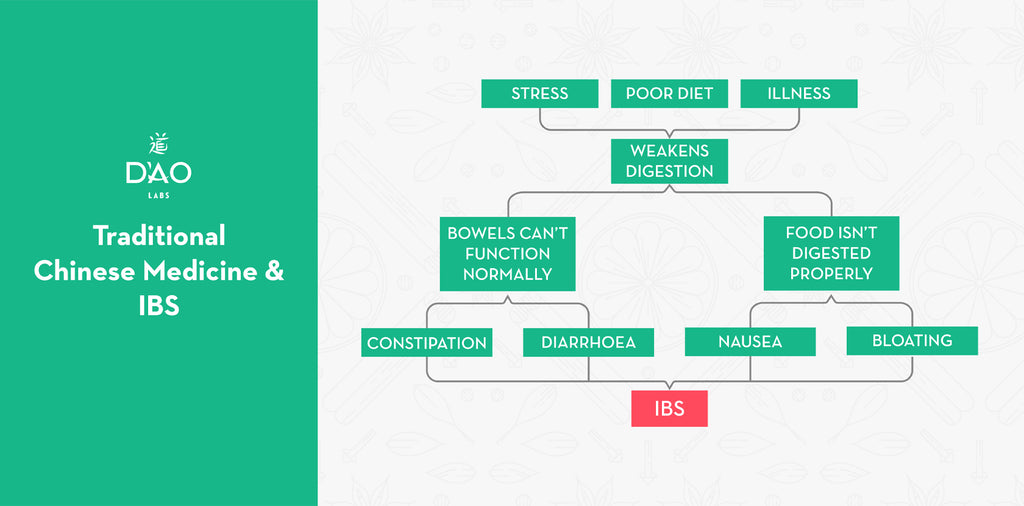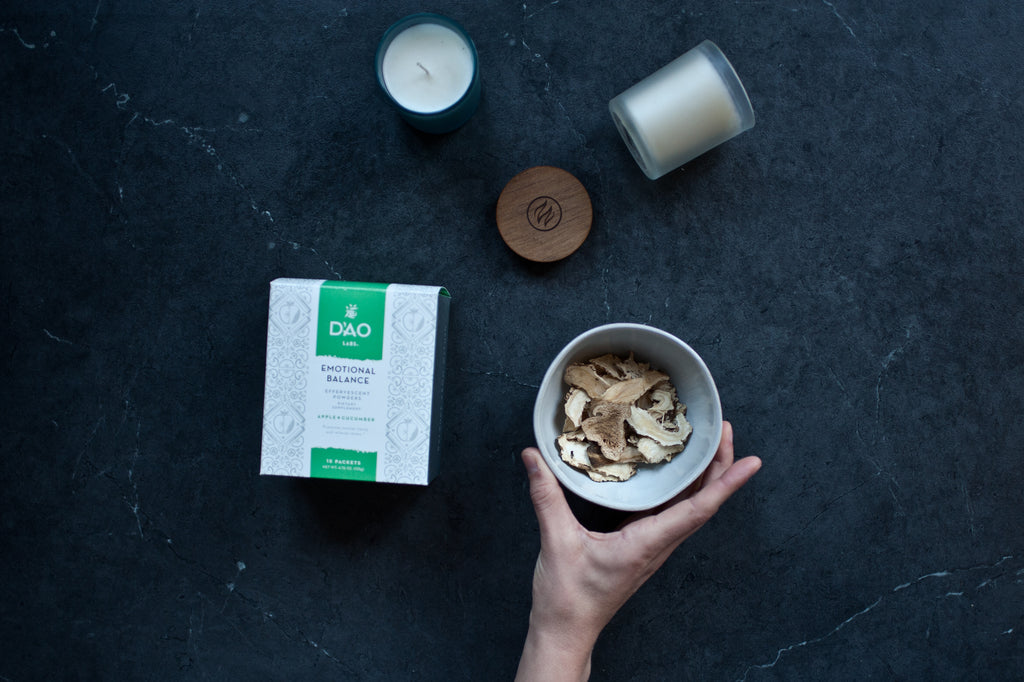Abdominal pain and cramping, bloating, gas, together with constipation, diarrhea, or both - these are the classic symptoms of Irritable Bowel Syndrome (IBS). The chronic, recurrent symptoms of IBS can wreak havoc on a sufferer's quality of life. Many individuals have to plan their days around proximity to a bathroom and access to non-irritating foods. Flare-ups seem to arise out of the blue and can cause hours of misery.
IBS is a mysterious condition, but one that Traditional Chinese Medicine practitioners should not shrink from. From the perspective of Western medicine, the causes of IBS are not well understood and therapeutic options are limited. Part of the enigma is that the term is something of a catchall.
Diagnosis of IBS is done by a process of elimination. Doctors only make the determination when laboratory tests and other exams rule out known causes to a patient's digestive complaints, such as celiac disease, parasites, colitis, colon cancer, and so on.

Stress, IBS and Traditional Chinese Herbs
Stress can be a major factor in anybody's life. As it can be a factor when trying to manage IBS symptoms, one support option I use frequently with my acupuncture patients to help lend support during times of stress is DAO Lab's Emotional Balance. Of course, it is important to remember that we never want to assume that one Chinese medicine formula supports all presentations of one Western medicine needs, especially one as broadly understood as IBS. Given this caveat, in situations where IBS is being strongly related to "stress," introducing Emotional Balance may be helpful in supporting digestive issues (again, particularly in times of stress).

Emotional Balance is inspired by the classic formula known as Xiao Yao San or Rambling Powder (also called "Free and Easy Wanderer Powder"). This formula treats the underlying pattern of "Liver Qi constraint invading the Spleen," which can explain a number of commonly seen traits of IBS.
- "Liver Qi constraint" is often at the root of both emotional volatility and spasmodic pain. Classically, we look for this pain in the flanks, but because Qi constraint is invading the Spleen, we may observe it more generally throughout the abdomen.
- "Qi constraint" is more superficial and then deeper causes of pain, such as blood stagnation. That makes it a useful concept for thinking about the ebb and flow of IBS. Patients often complain about bloating and pain that flares up due to some trigger but then recedes.
- The relationship between the Liver and Spleen can operate in both directions. Acupuncturists are familiar with the Liver invading the Spleen, but perhaps less aware that a deficiency in the Spleen makes it vulnerable to attack by Liver Qi. This dynamic helps us to understand why IBS patients often complain that certain foods, particularly cold, hard-to-digest foods that damage the Spleen and Stomach, will trigger the painful spasms and emotional distress associated with Liver Qi constraint.
Western medicine and eastern medicine agree: stress can affect every part of the digestive system. It's no surprise that finding ways to mitigate stress plays an essential role in supporting and improving digestive functions.
Care Consideration: Just a reminder that the above information is not a substitute for medical care and is not a substitute for medical advice or recommendations from a healthcare provider. This information is not intended to treat, mitigate or cure any disease. That said, we encourage you to connect with an Acupuncturist in your community to learn more about this and other Traditional Chinese Medicine options. If you’ve got questions about Chinese herbal medicine or getting started with an Acupuncturist, feel free to connect with us on hello@mydaolabs.com.












,_LAc_96x96.jpg?v=114318)



